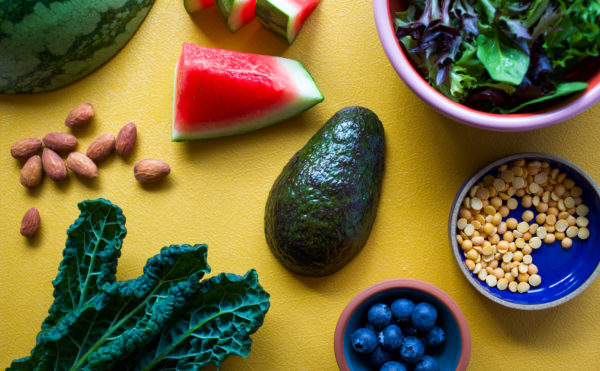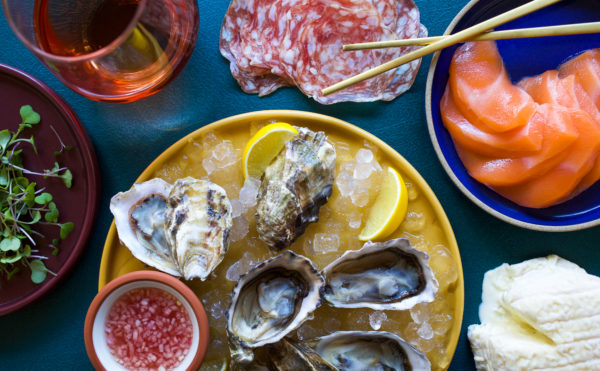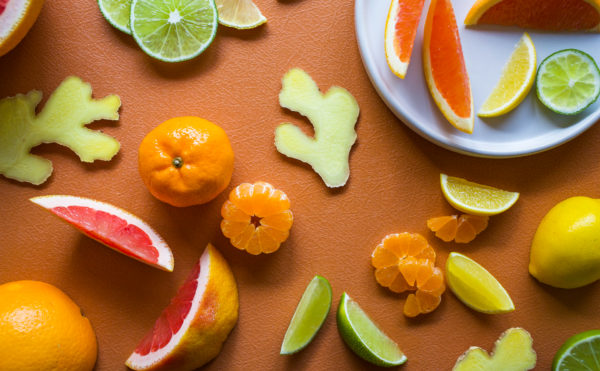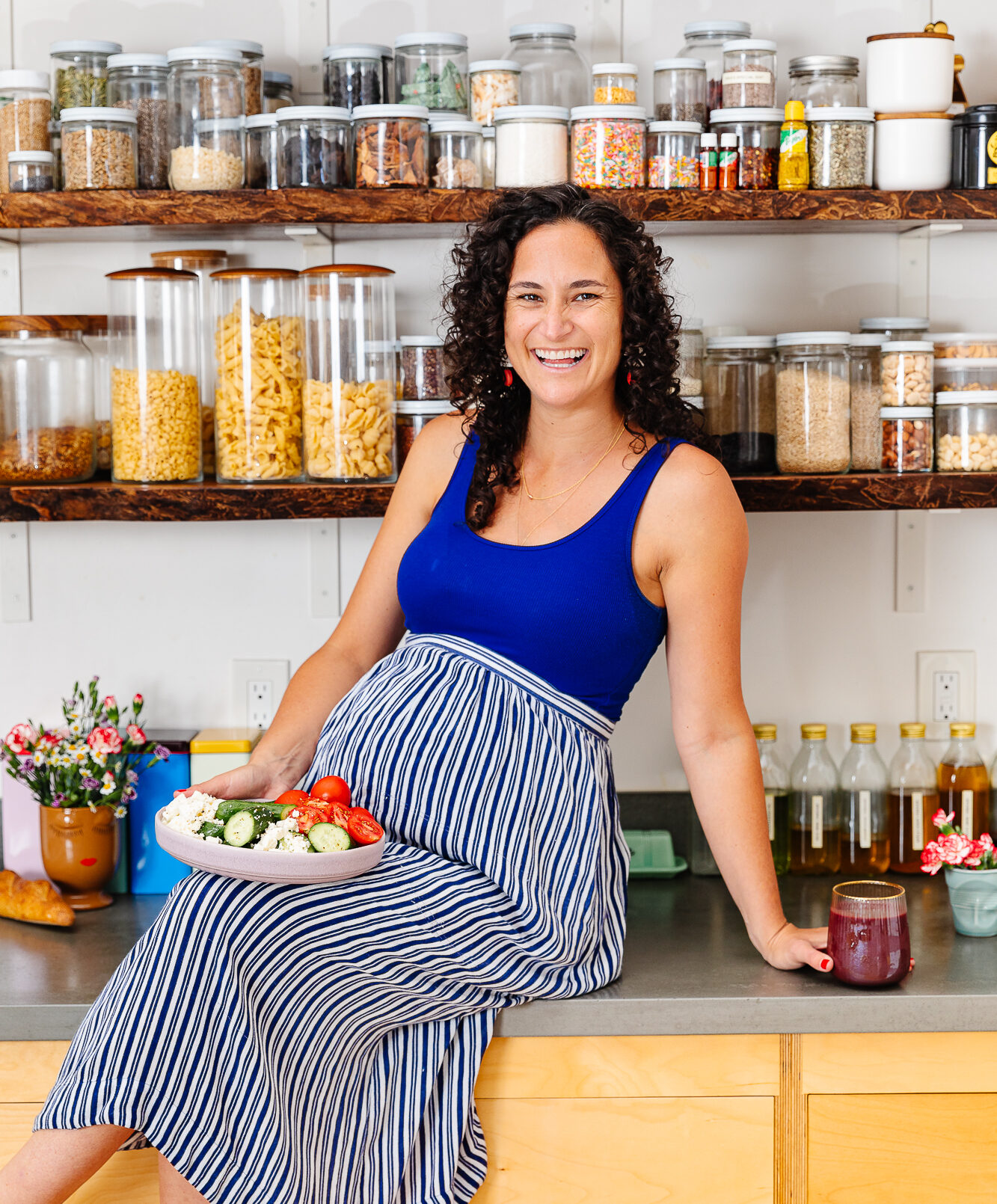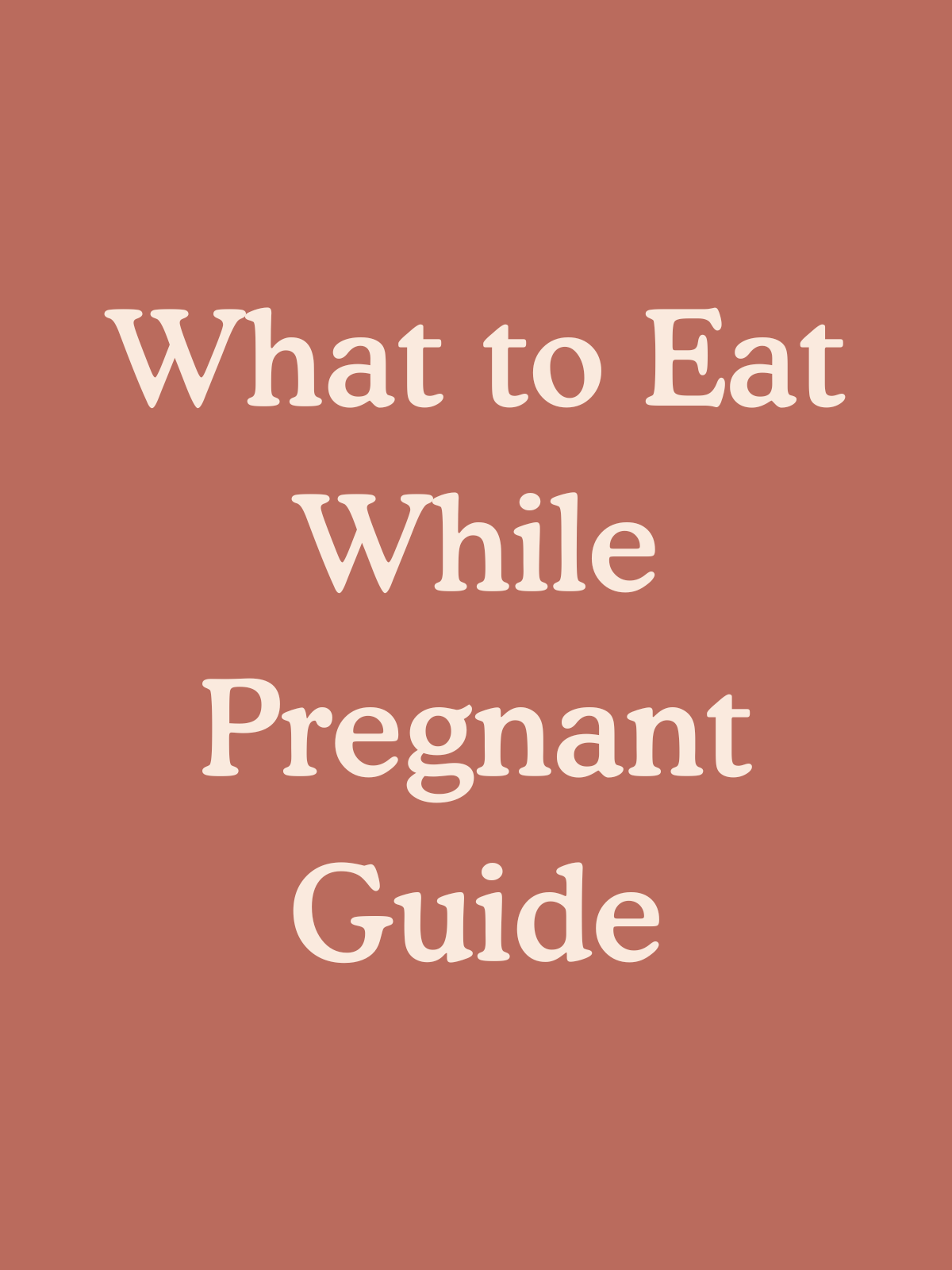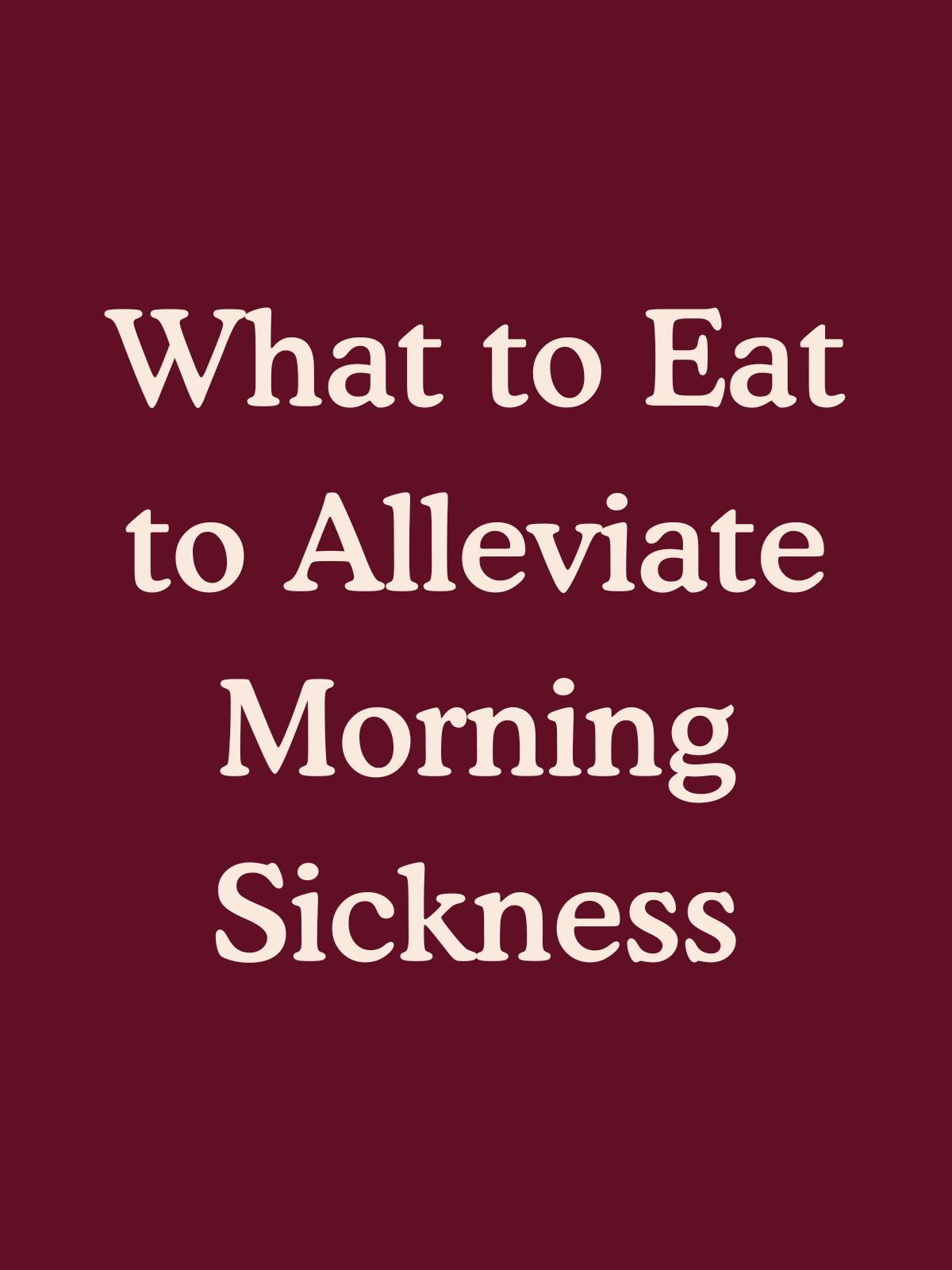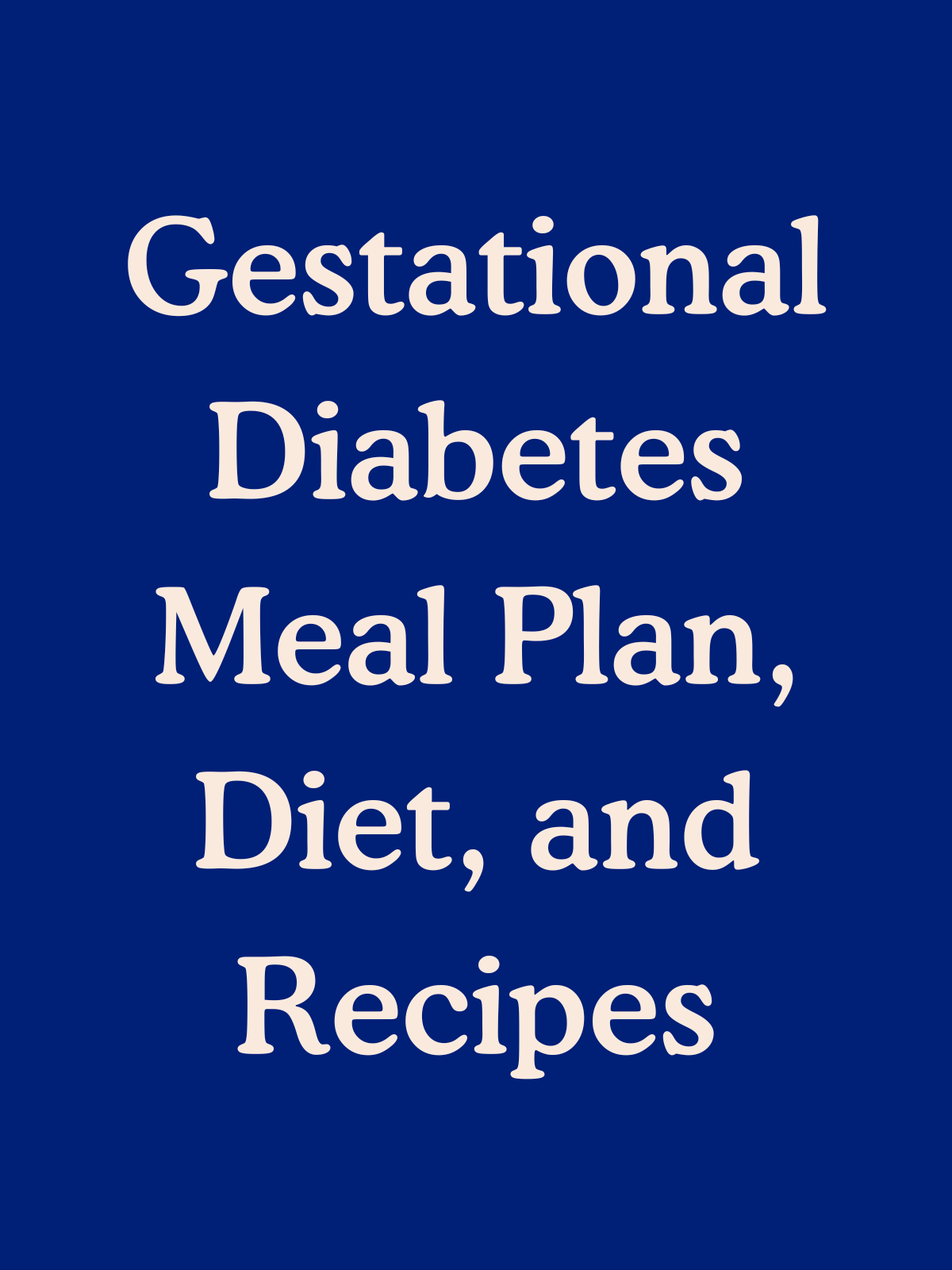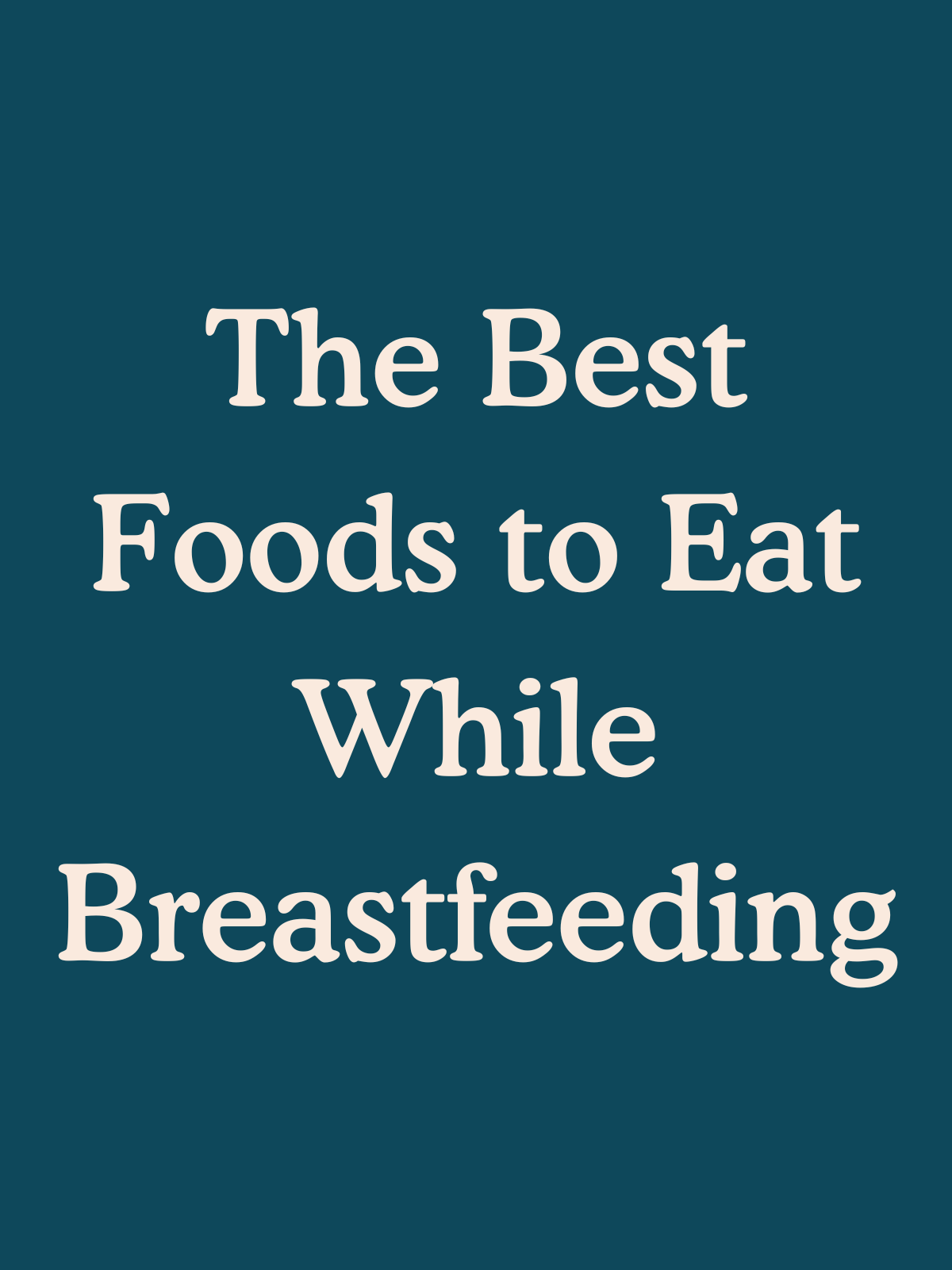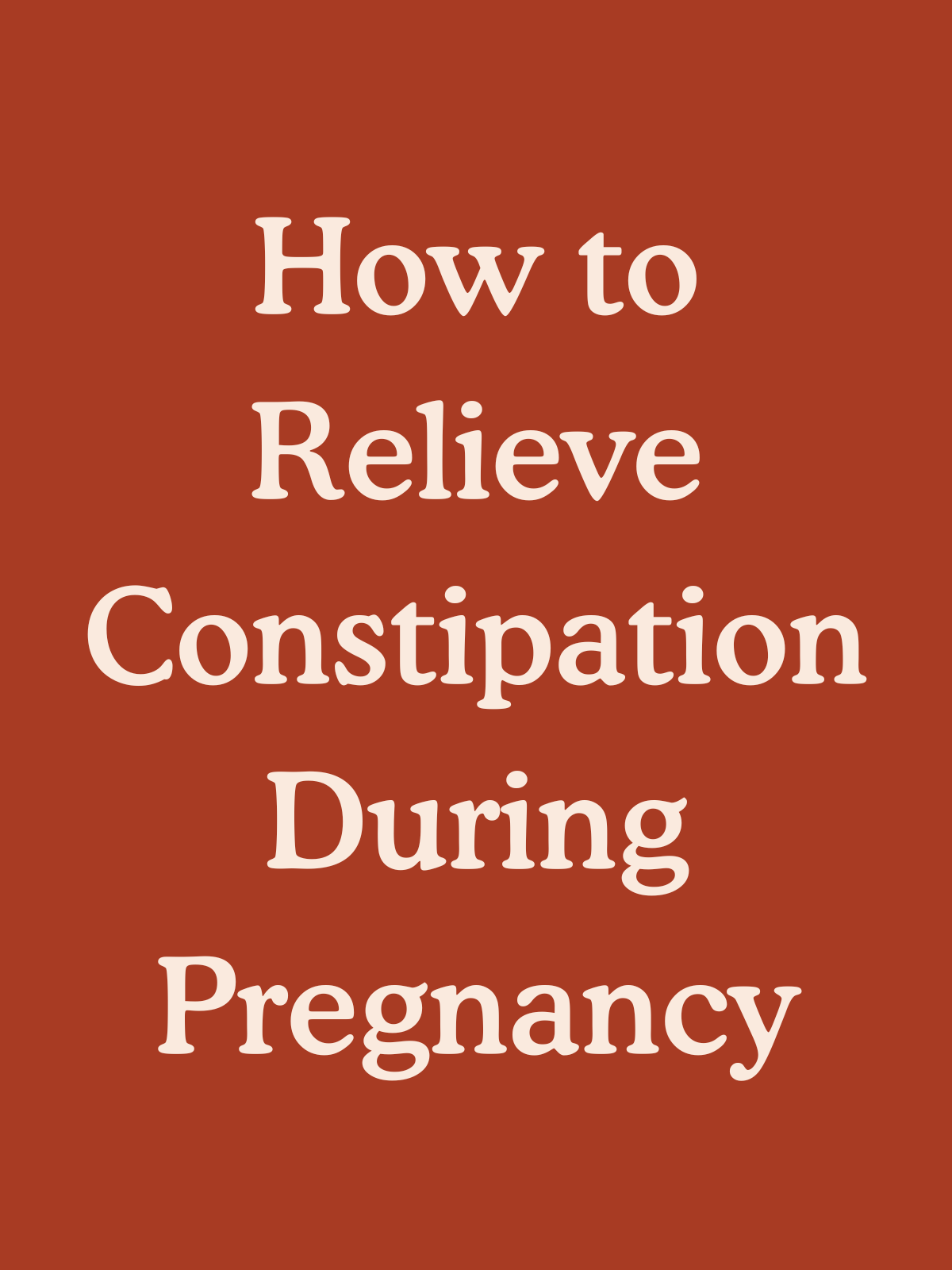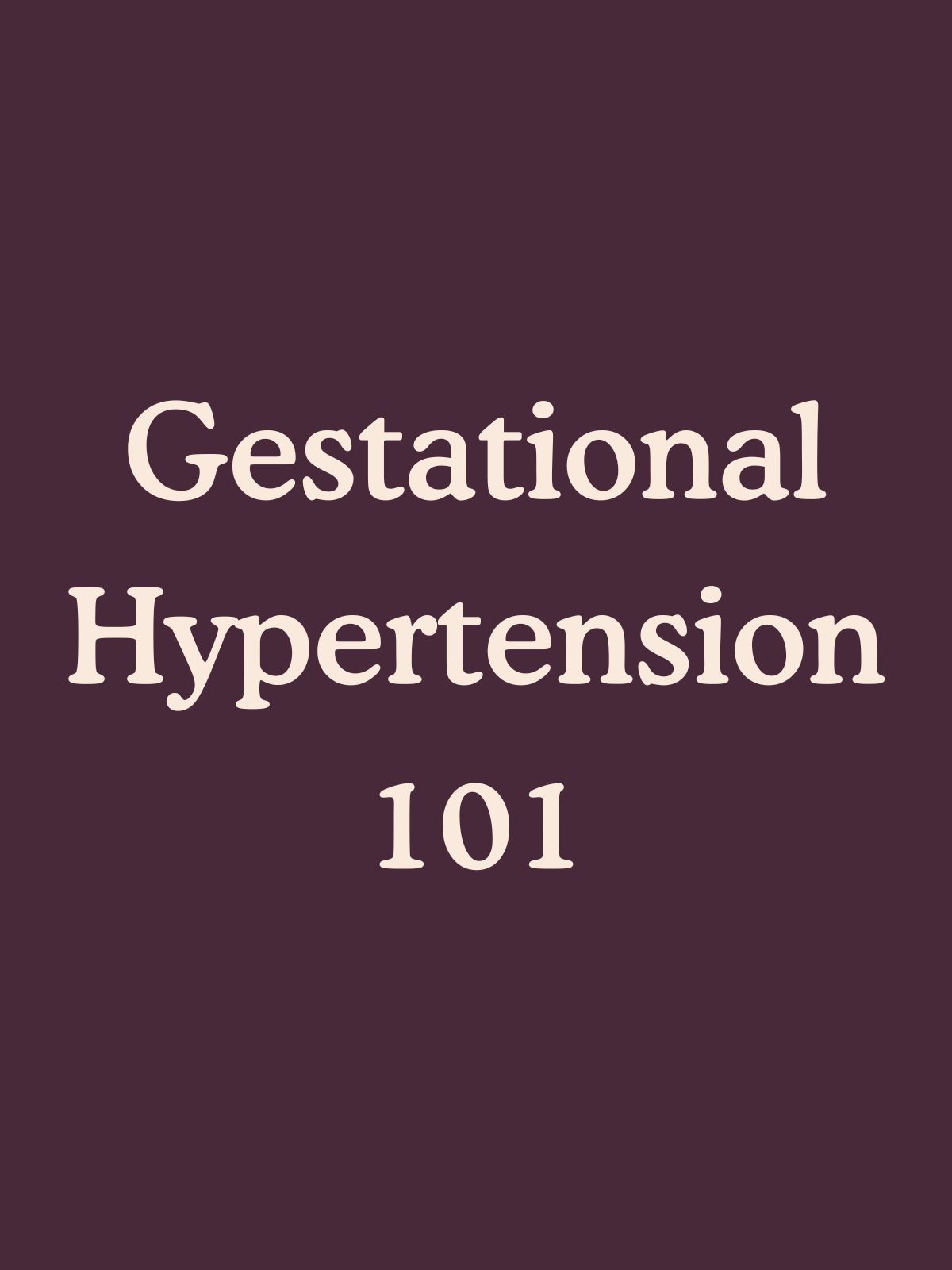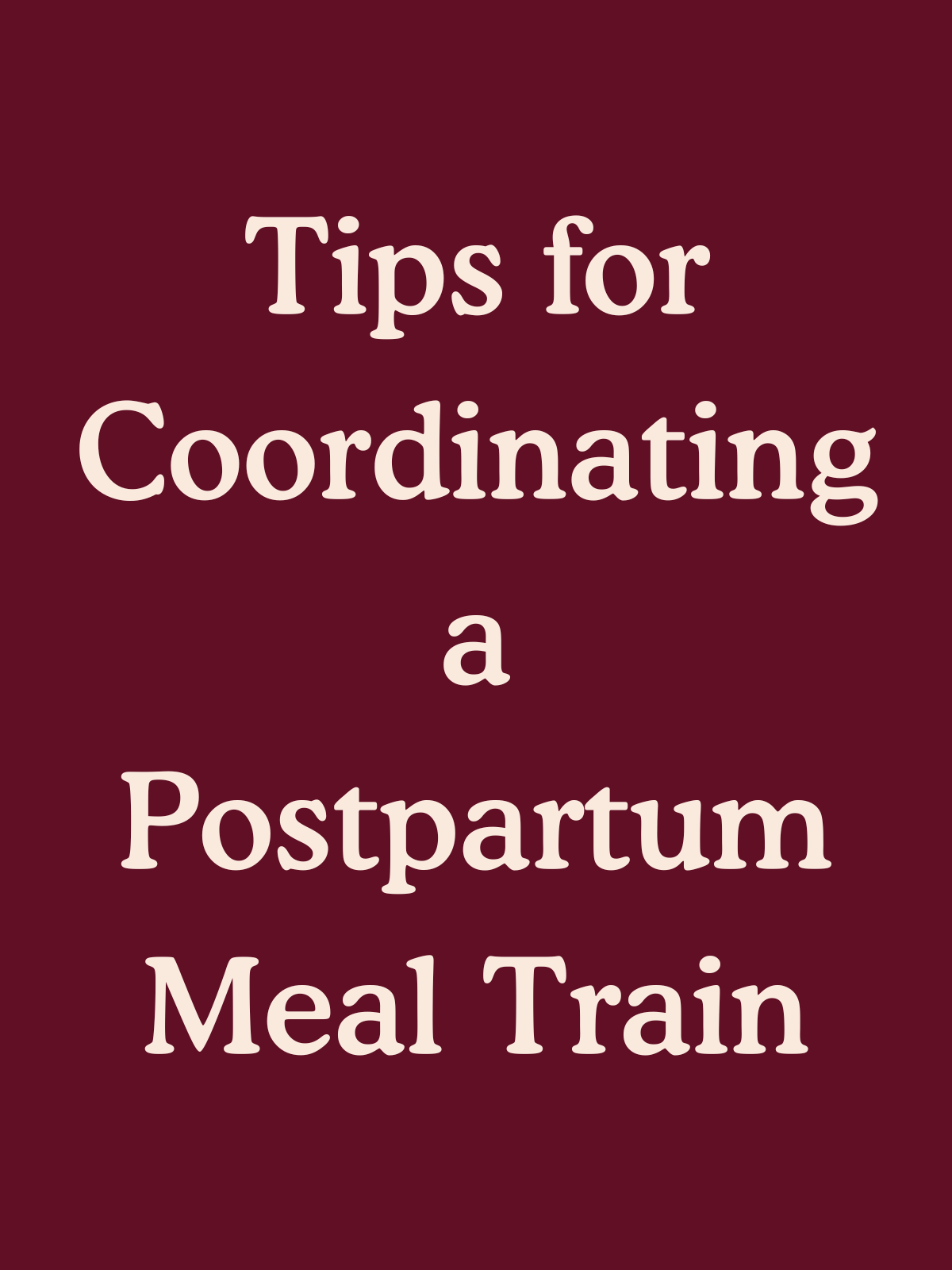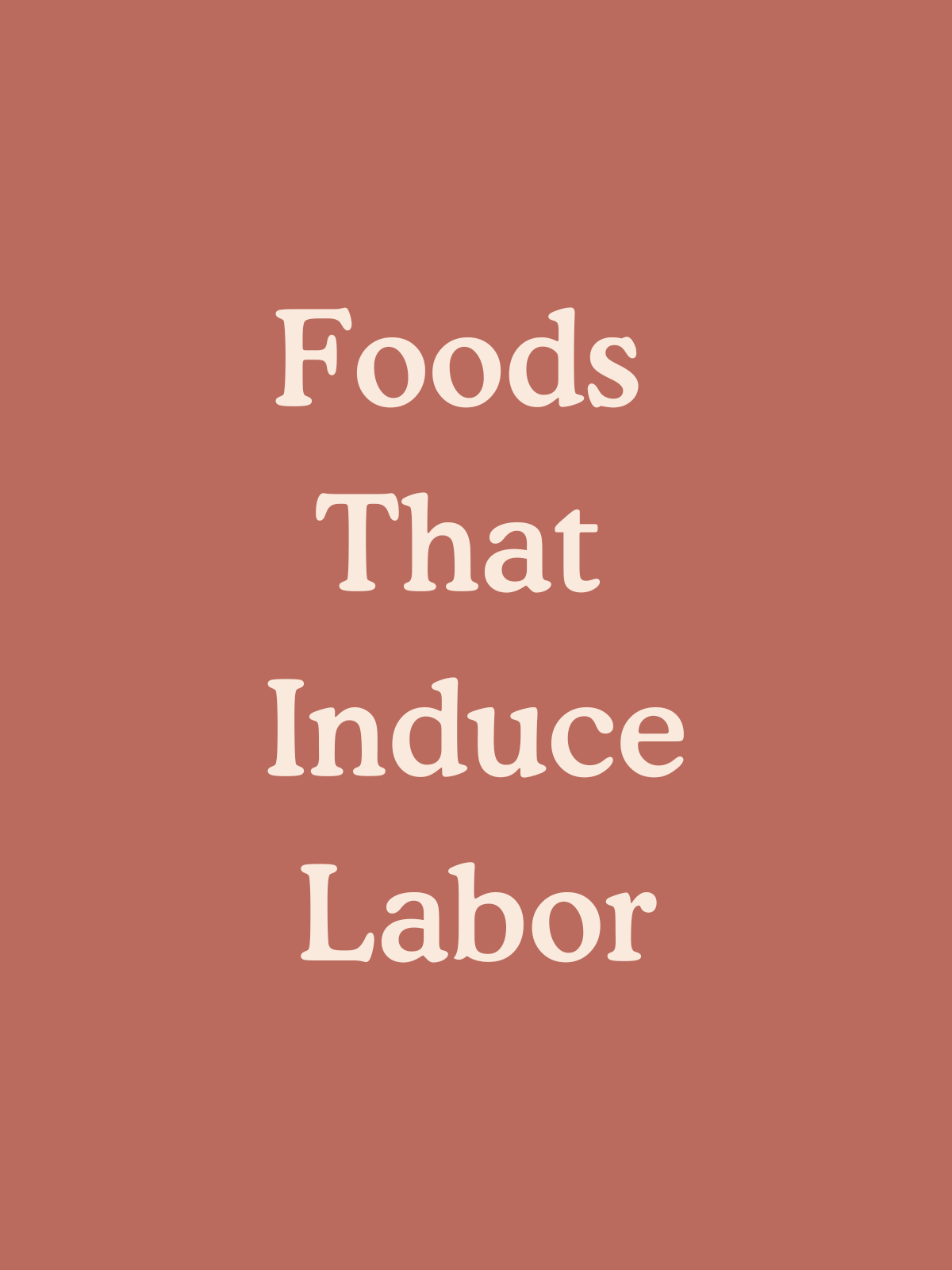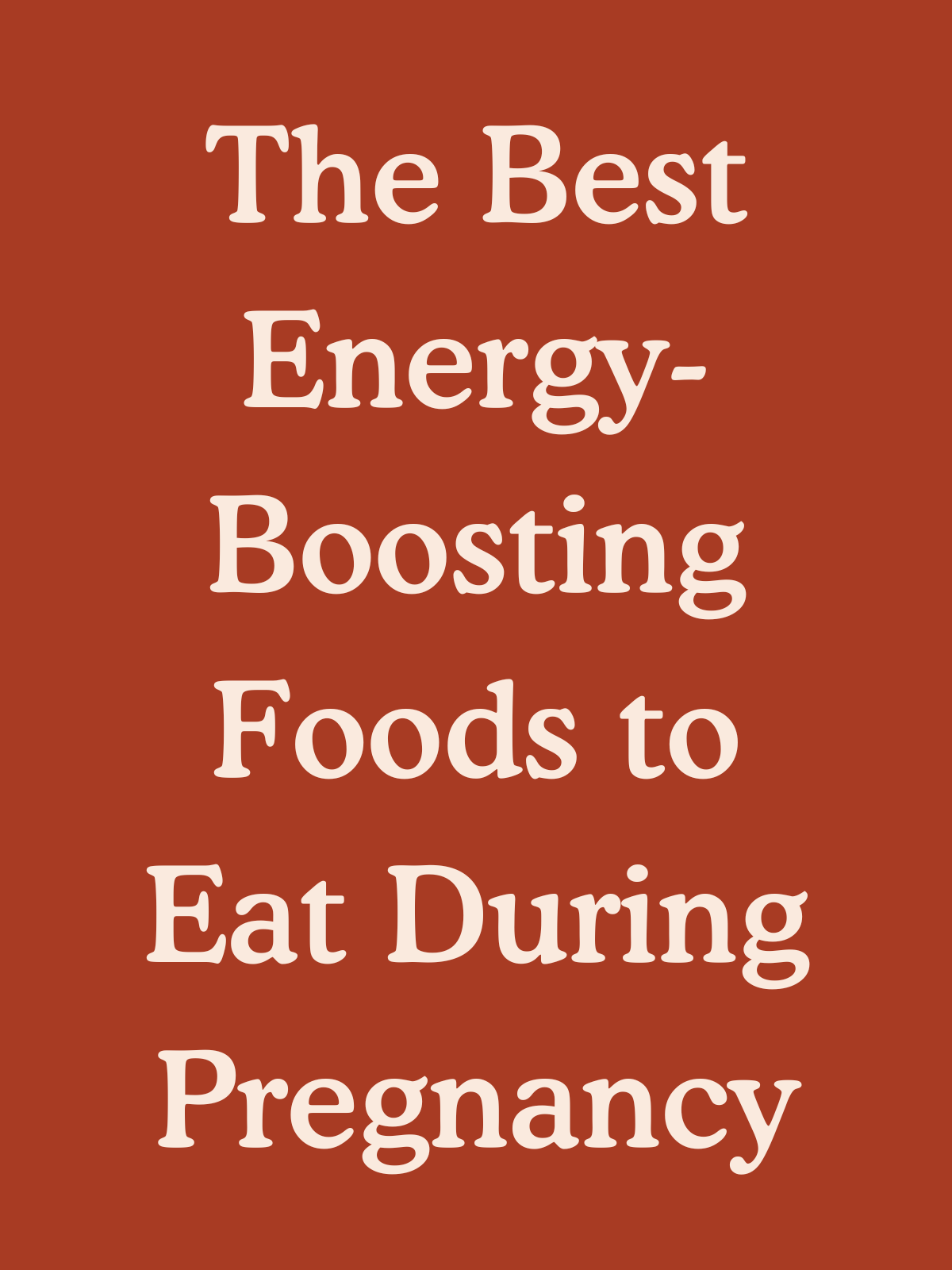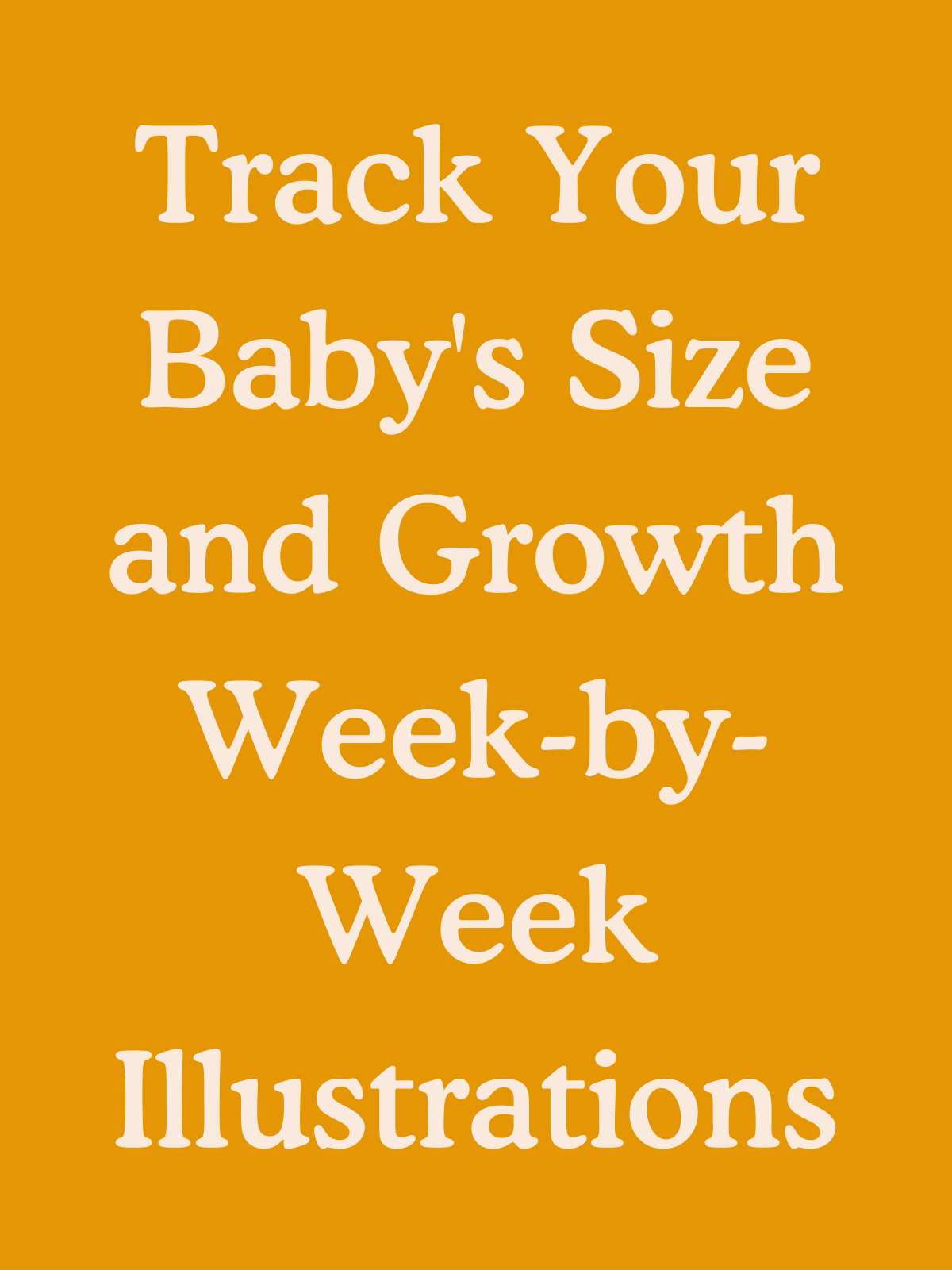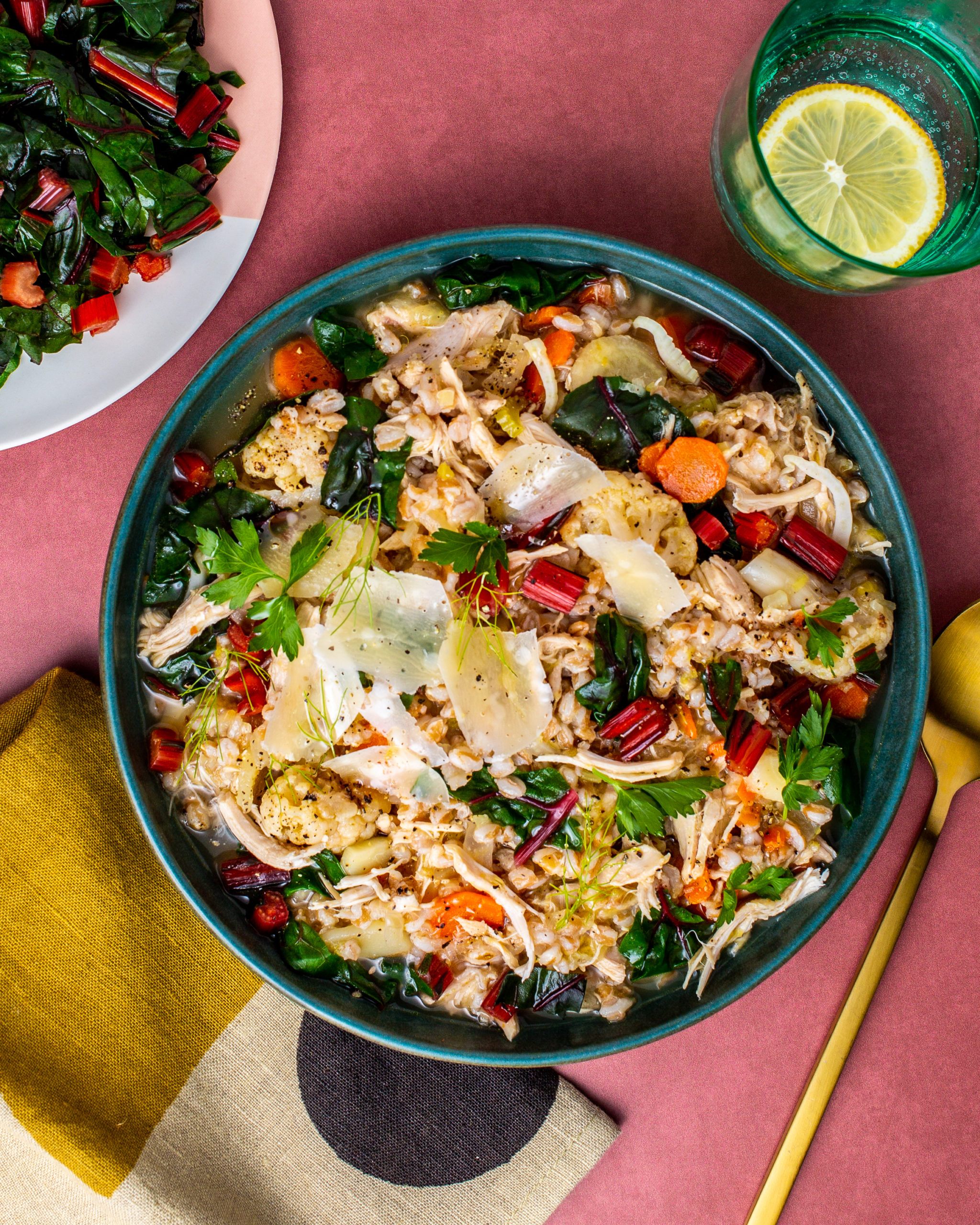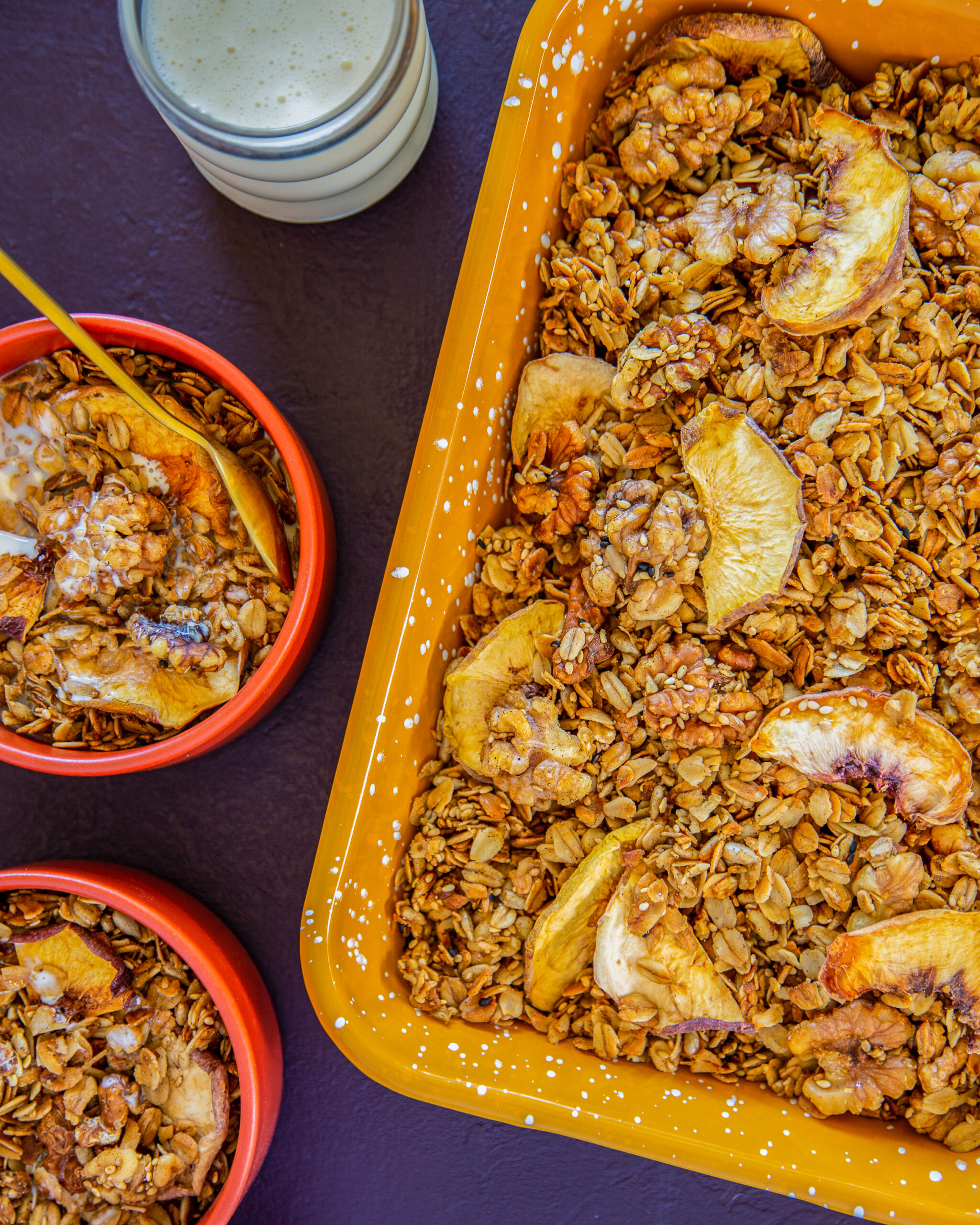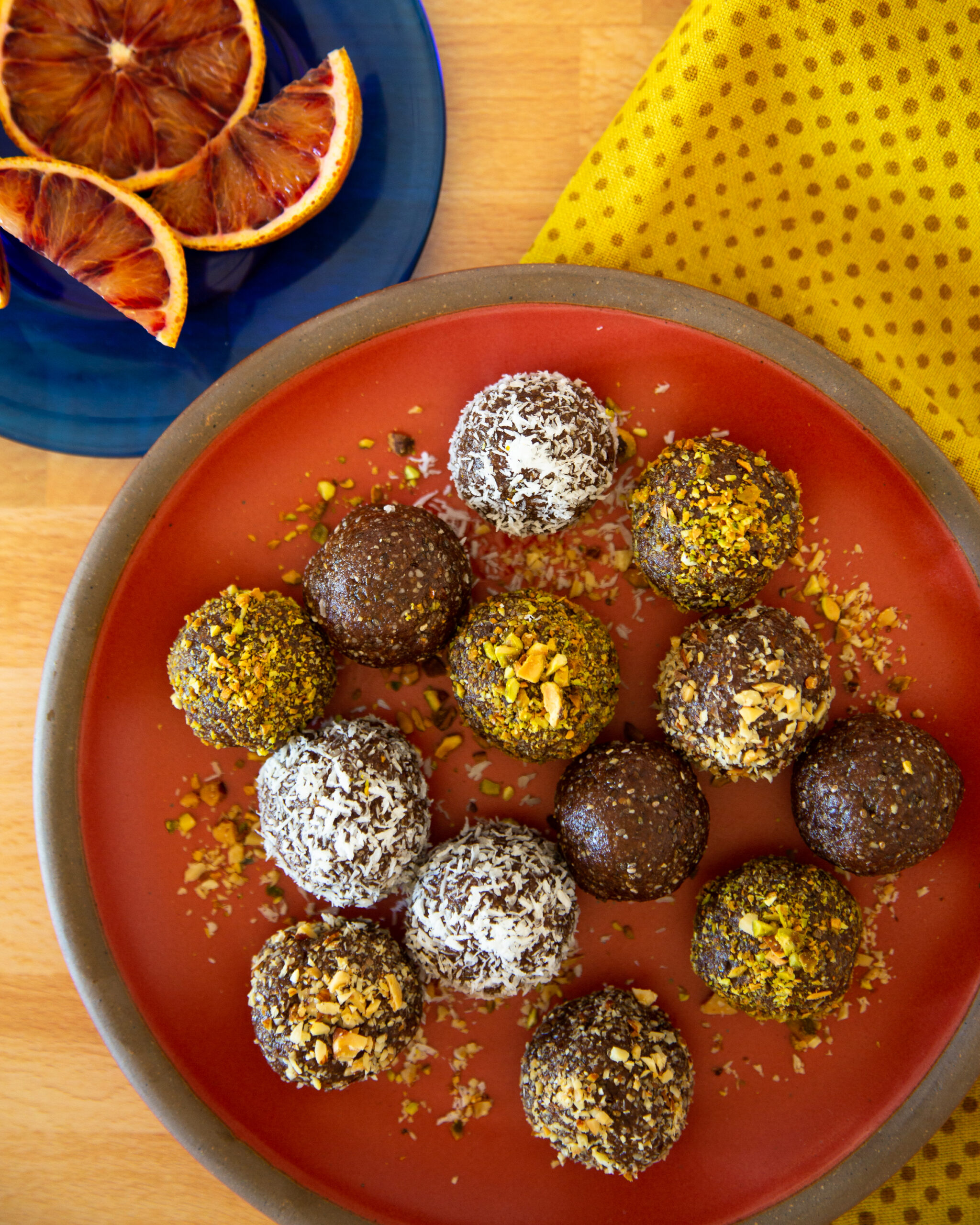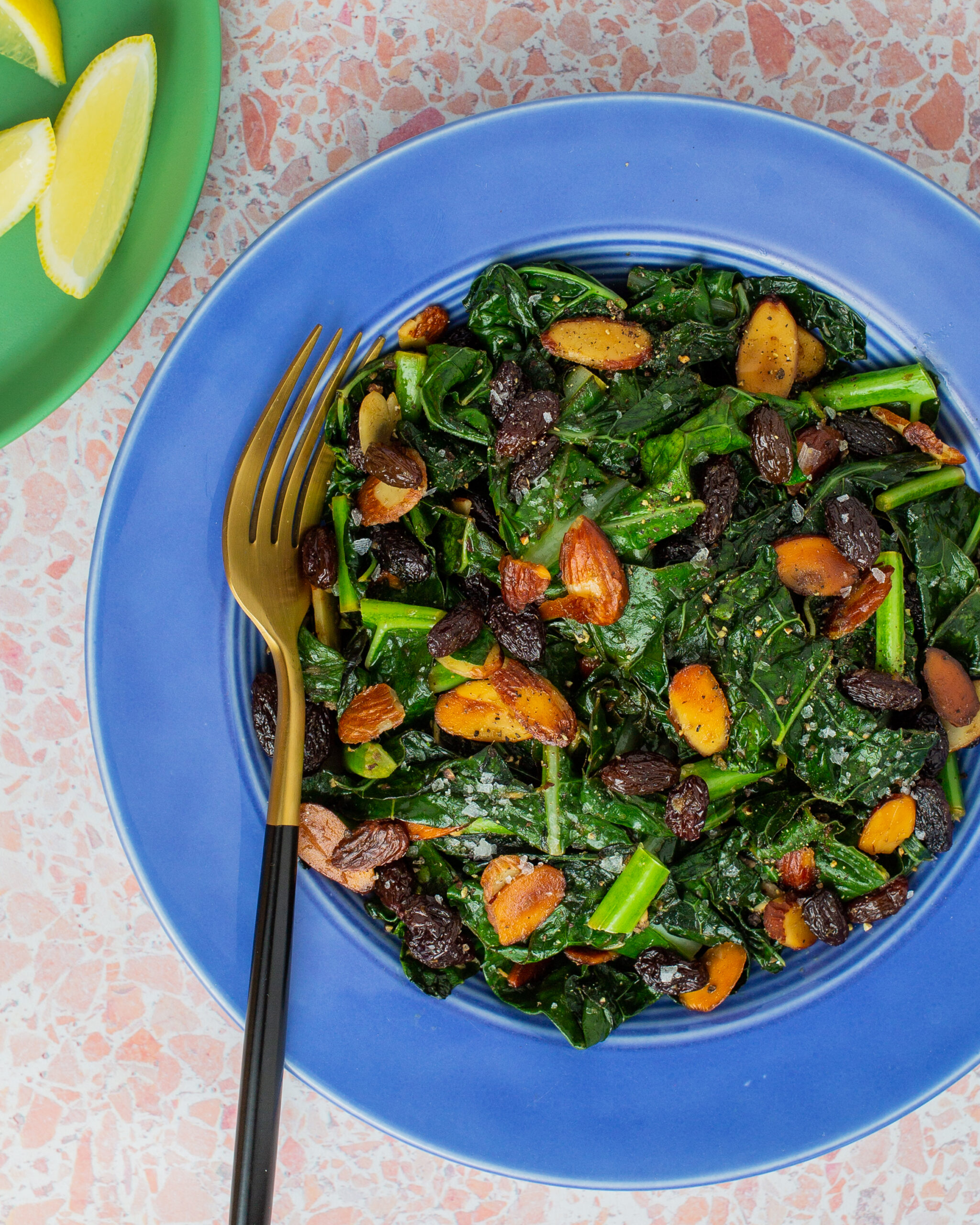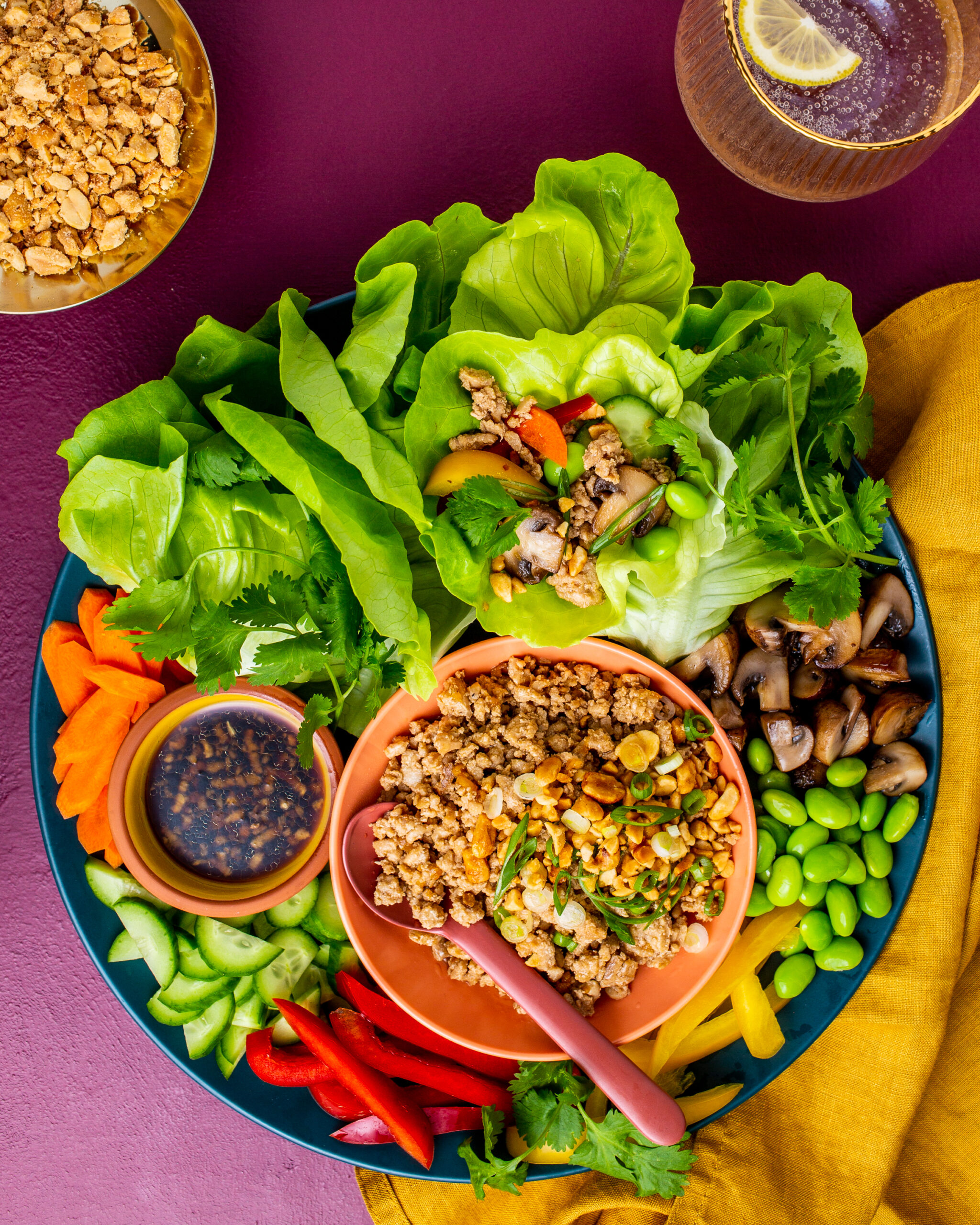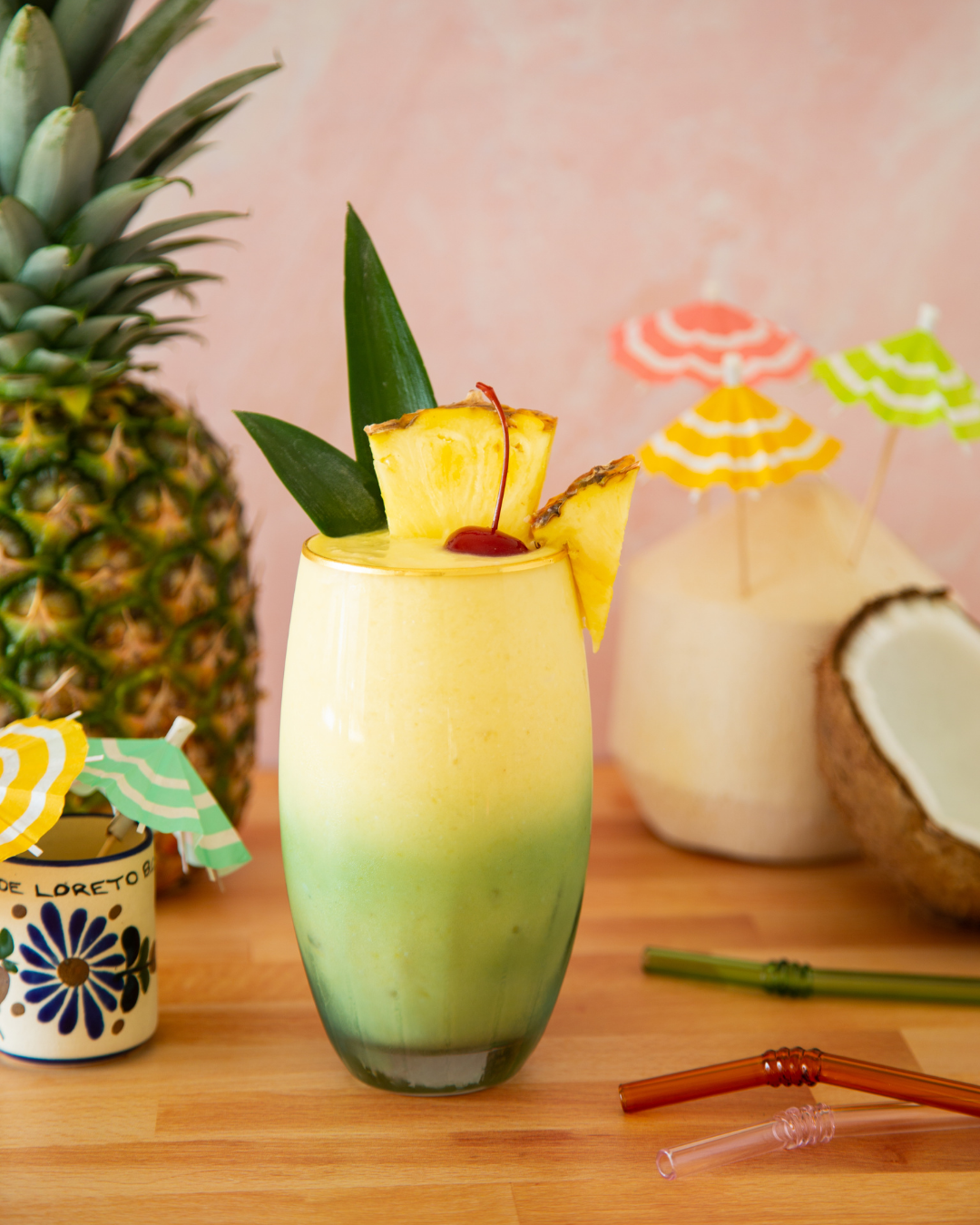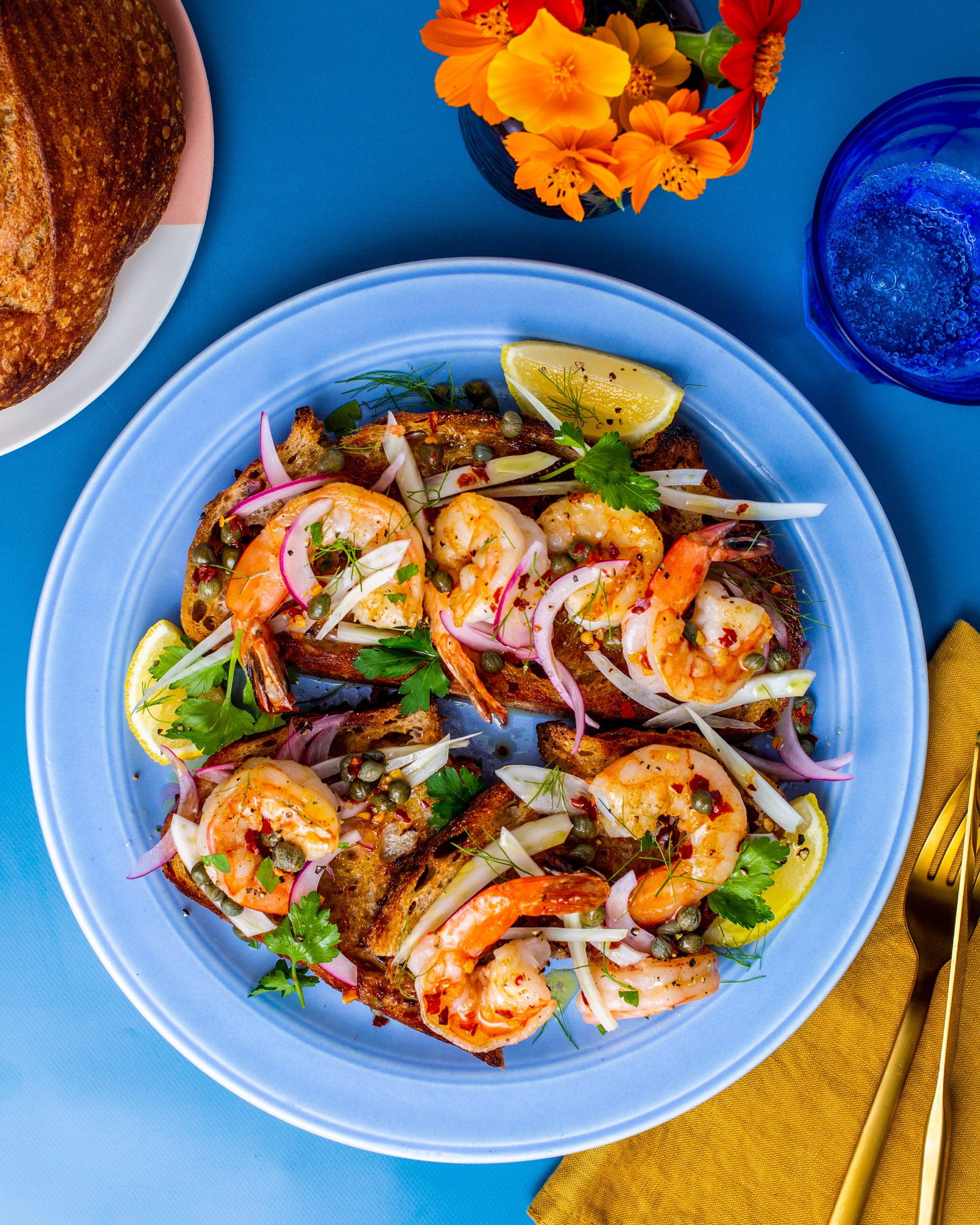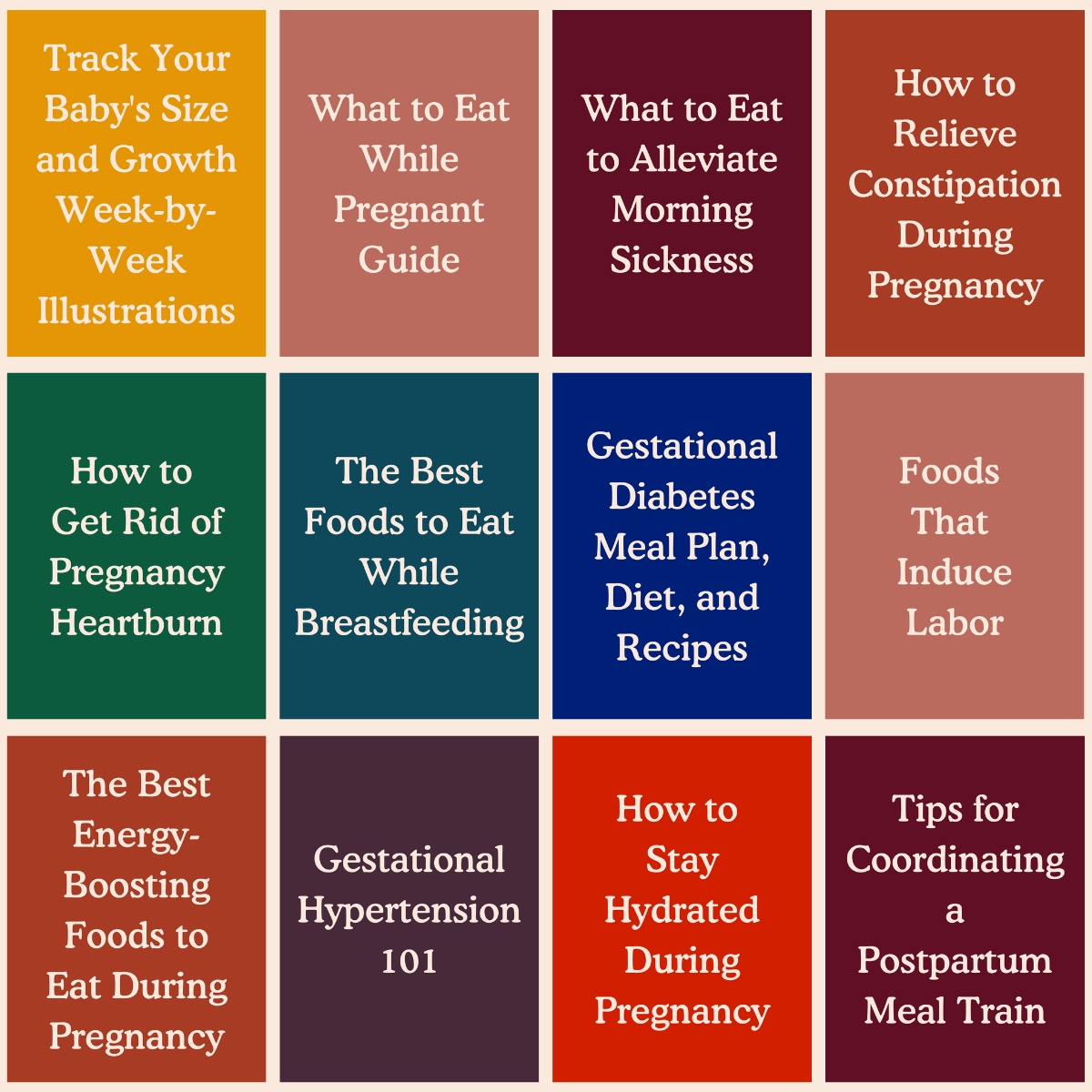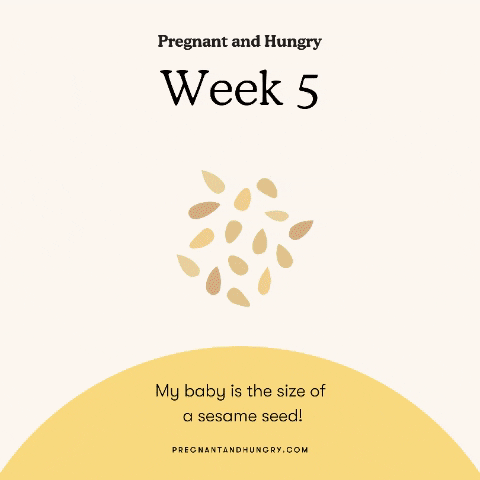5 High Protein Pregnancy Breakfast Recipes
December 25, 2023
When you become pregnant, you’re bombarded with advice on what to include and exclude from your diet for a healthy pregnancy. An indispensable element of a well-rounded pregnancy diet is protein! This fundamental building block plays a crucial role in supporting your body as it undergoes remarkable changes and contributes to the optimal growth of your baby. Including protein in your breakfasts can go a long way in helping you reach your pregnancy nutrition goals.
How Does Protein Affect Pregnancy?
Protein is always an important nutrient for people, as it plays an essential role in wound healing, muscle repair and growth, and keeping the immune system strong.It becomes even more important during pregnancy, as the amino acids support cell growth including the formation of your baby’s muscles, organs, skin, and bones.
To support this new life, your body ramps up blood production – your blood volume increases by about 45% during pregnancy! Protein – as well as iron – plays a vital role in this process.
How Much Protein Should A Pregnant Woman Eat A Day?
According to the American Pregnancy Association, pregnant women need 75 to 100 grams of protein per day. For reference, two eggs contain 12 grams of protein, Greek yogurt 15 grams, an ounce of mixed nuts has five grams, and a chicken breast has around 31 grams of protein.
In addition to Greek yogurt, nuts, and chicken, we suggest adding these high-protein, pregnancy-safe foods on your grocery list, as well as these recommended by Healthline:
- Lean beef and pork
- Salmon (a fantastic superfood you can enjoy in this dinner recipe)
- Peanut butter
- Cottage cheese (perfect to eat with veggie sticks as a snack)
- Beans (a staple in chili recipes)
What Happens If You Don’t Eat Enough Protein During Pregnancy?
Protein is important for energy production, so not getting enough in your diet can contribute to fatigue and weakness.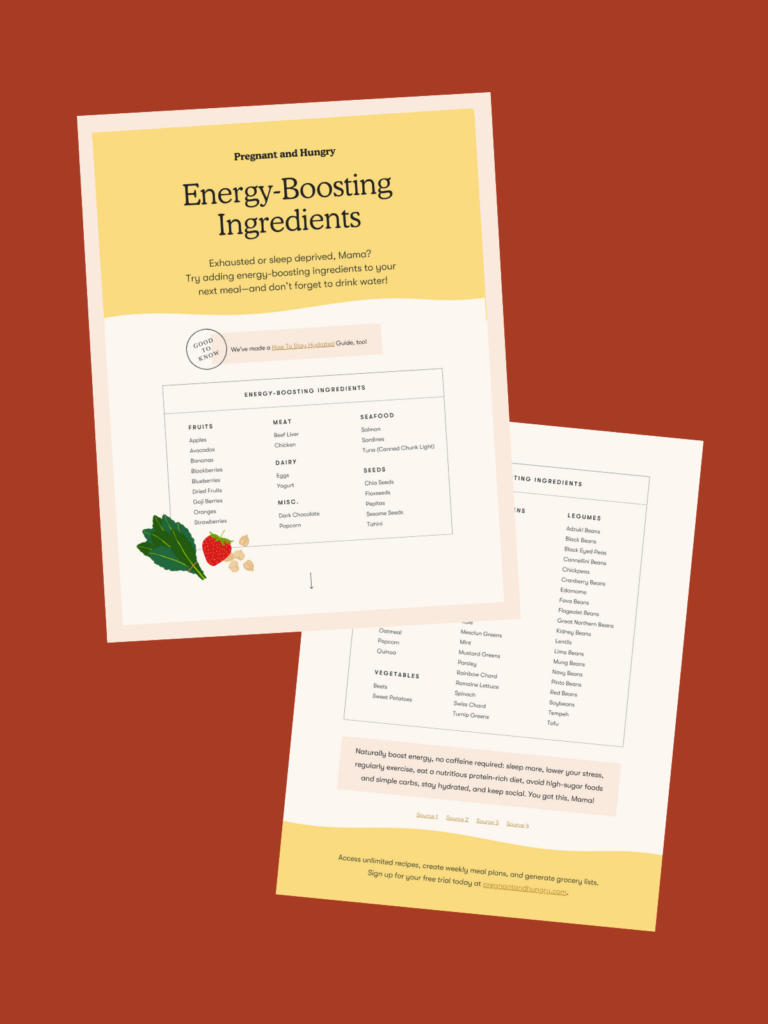
The Best Energy-Boosting Foods to Eat During Pregnancy
A List of Nutrient-Rich Foods for Expecting Moms
Get the GuideIt’s not uncommon to feel exhausted or sleep-deprived during your pregnancy and postpartum period (also known as the fourth trimester). So, if you’re ready to add some energy-boosting ingredients to your daily meals, you’ll find this guide has exactly what you’ve been craving.
A peek inside:
- Energy-boosting fruits
- Vivacious vegetables
- Packed proteins: meat, seafood, dairy
- Supercharged seeds and nuts
- Life-giving leafy greens, legumes, and grains
- A few tips for other ways to naturally boost your energy that don’t include caffeine
As protein plays a crucial role in your immune function, you could become more susceptible to illness if your diet lacks this nutrient.
Low protein can also impact the development of your baby as well as labor. “Meeting your daily protein needs may also lower the risk of complications like fetal growth restriction and preterm labor,” says What To Expect. Preterm labor and low birth weight are associated with an increased risk of health problems in babies.
Many high-protein foods also contain iron. So, inadequate protein consumption can contribute to pregnancy anemia (low iron) which can increase the chance of premature birth and is associated with postpartum depression, according to Mayo Clinic.
Here are five pregnancy breakfast recipes that will give you a protein boost in the morning:
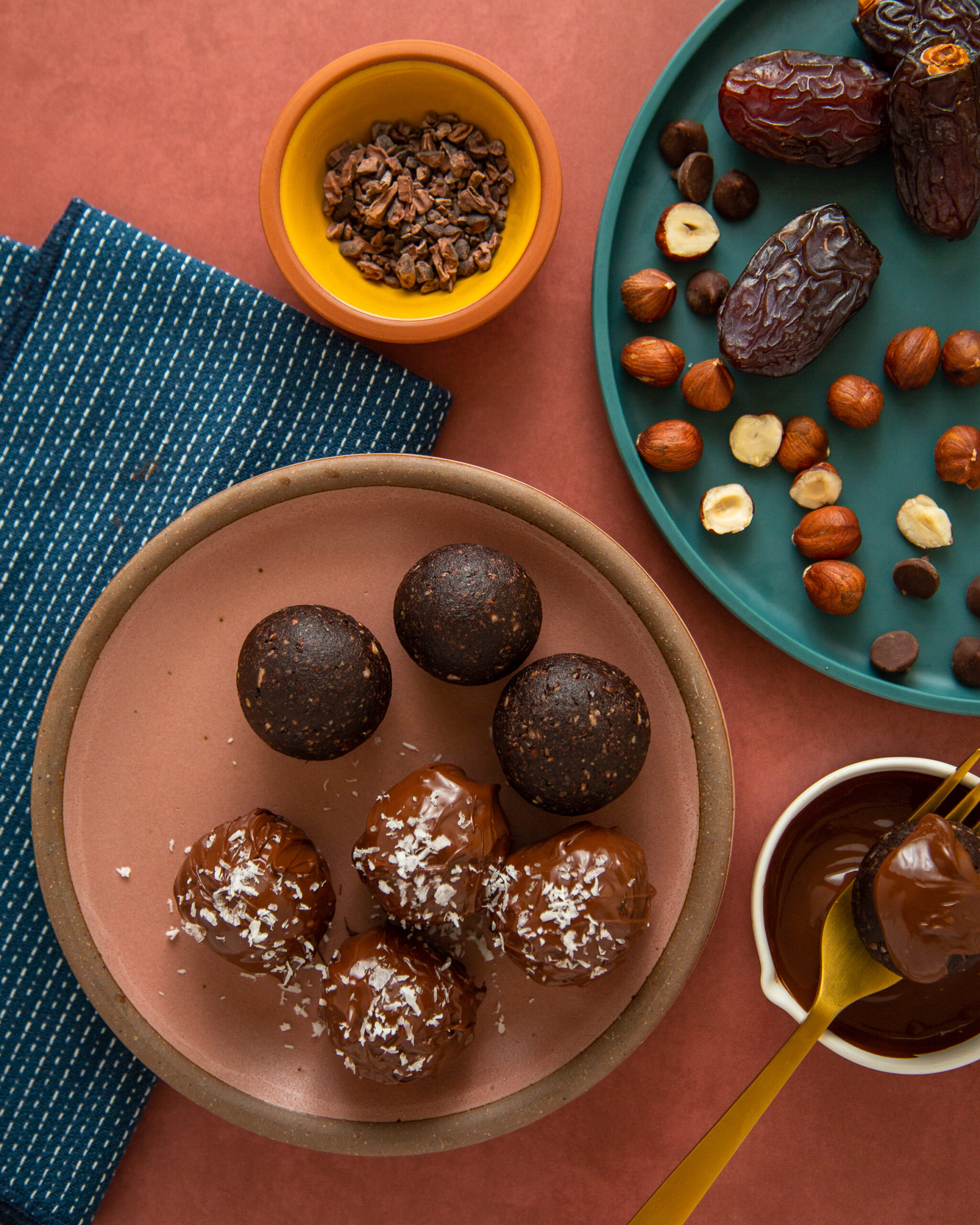
Cacao, Orange Zest, and Cardamom Energy Truffles
This is a healthy on-the-go pregnancy breakfast when you want something sweet yet still nutritious.
The protein content in these truffles comes from the almonds and pistachios. Both of these nuts are also fantastic courses of potassium, a vitamin that can help lower blood pressure.
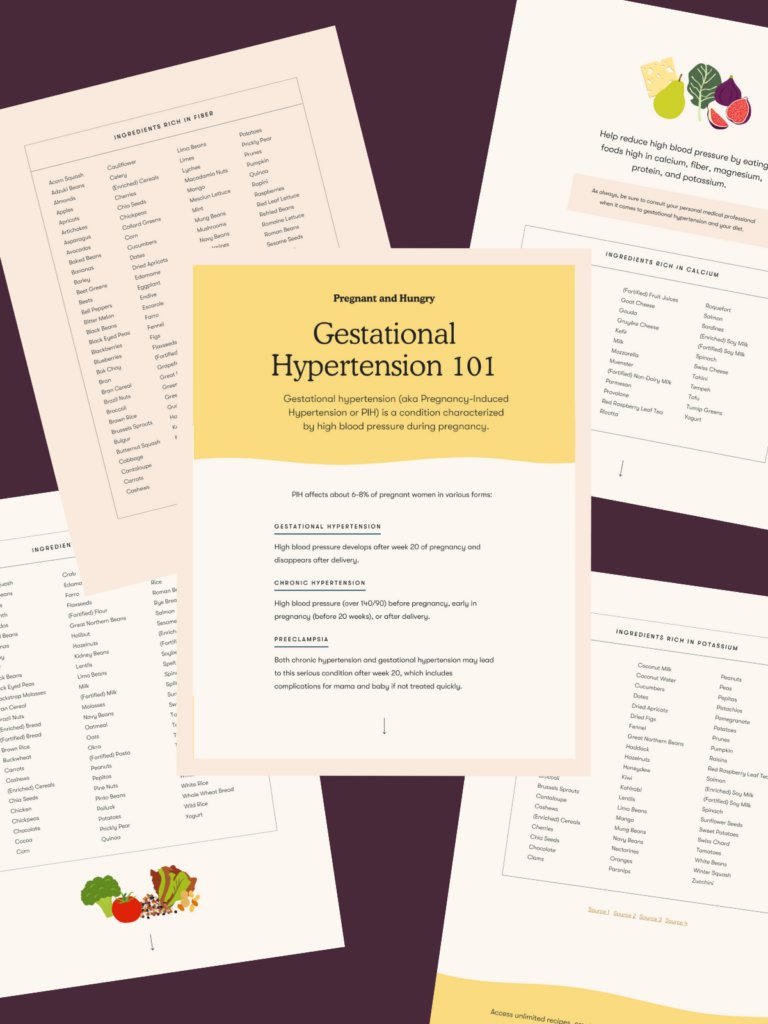
If you’re a mama who is experiencing high blood pressure during your pregnancy, we’ve created a guide just for you. Inside it, you’ll learn what gestational hypertension is, ways to control it, and which ingredients help reduce high blood pressure.
A peek inside:
- The difference between gestational hypertension and chronic hypertension
- Who’s most at risk
- Contributing factors that help control high blood pressure
- Lists of foods that are high in calcium, fiber, magnesium, protein, and potassium
Tip: They’re called ‘energy truffles’ for a reason! Make a batch of these as part of your pregnancy meal prep to snack on when you’re feeling drained.
Get the full recipe here.

Sneaky Green Frittata
One of the best pregnancy breakfast foods to incorporate into your meal plan is eggs, and not just because they’re rich in protein. Eggs are high in choline, a vitamin that’s associated with the healthy development of your baby’s brain.
“Choline plays a role in your fetus’s brain development. It may also help prevent some common birth defects. Experts recommend that you get 450 mg of choline each day during pregnancy,” explains The American College of Obstetricians and Gynecologists.
While you’ll get protein from the eggs and milk this recipe calls for, you’ll all get fiber from the potatoes and Swiss chard. To prevent constipation, one of the most common side effects of pregnancy, increasing your intake of high-fiber foods is absolutely key.
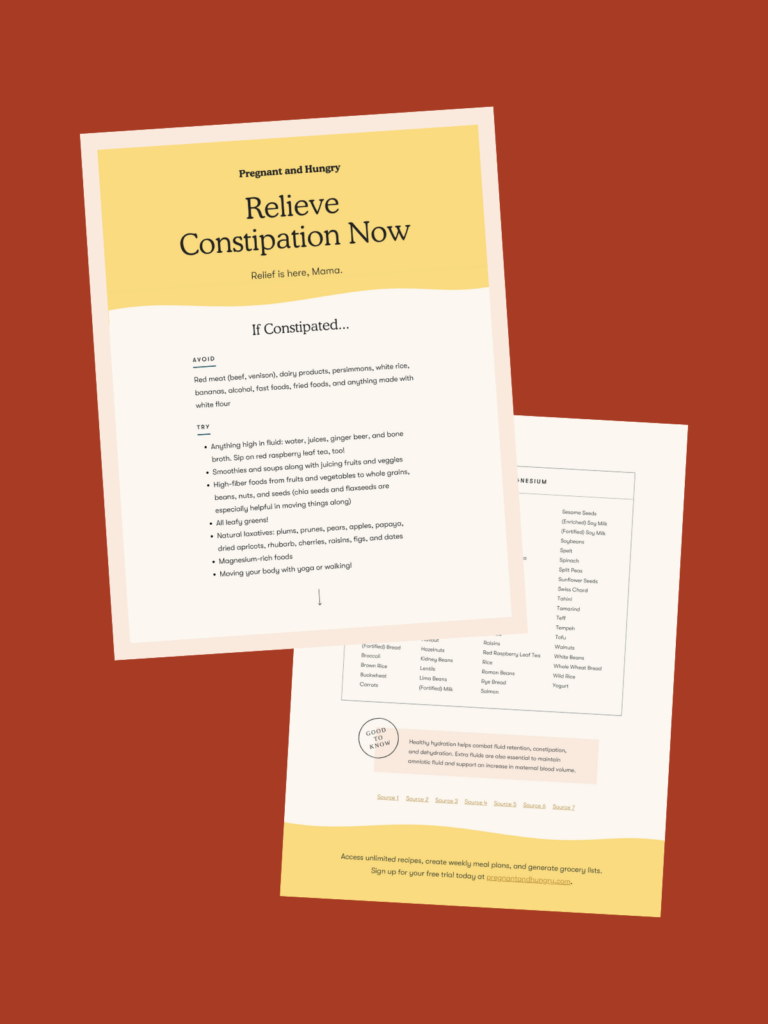
How to Relieve Constipation During Pregnancy
Dietary Remedies for Pregnancy Constipation Relief
Get the GuideConstipation can be a real pain in the butt. But luckily for you, we’ve got a whole resource that can help provide constipation relief during pregnancy. Download this guide to find out which foods will help get things moving along!
A peek inside:
- Which foods are best to avoid if you’re experiencing constipation
- Recommendations for activities to try and ingredients to buy
- A list of foods rich in magnesium (a mineral that helps relieve constipation!)
- The importance of staying hydrated
Eating a variety of fiber-rich foods is also shown to lower the risk of cardiovascular disease, certain types of cancer, blood pressure, and diabetes.
Get the full recipe here.
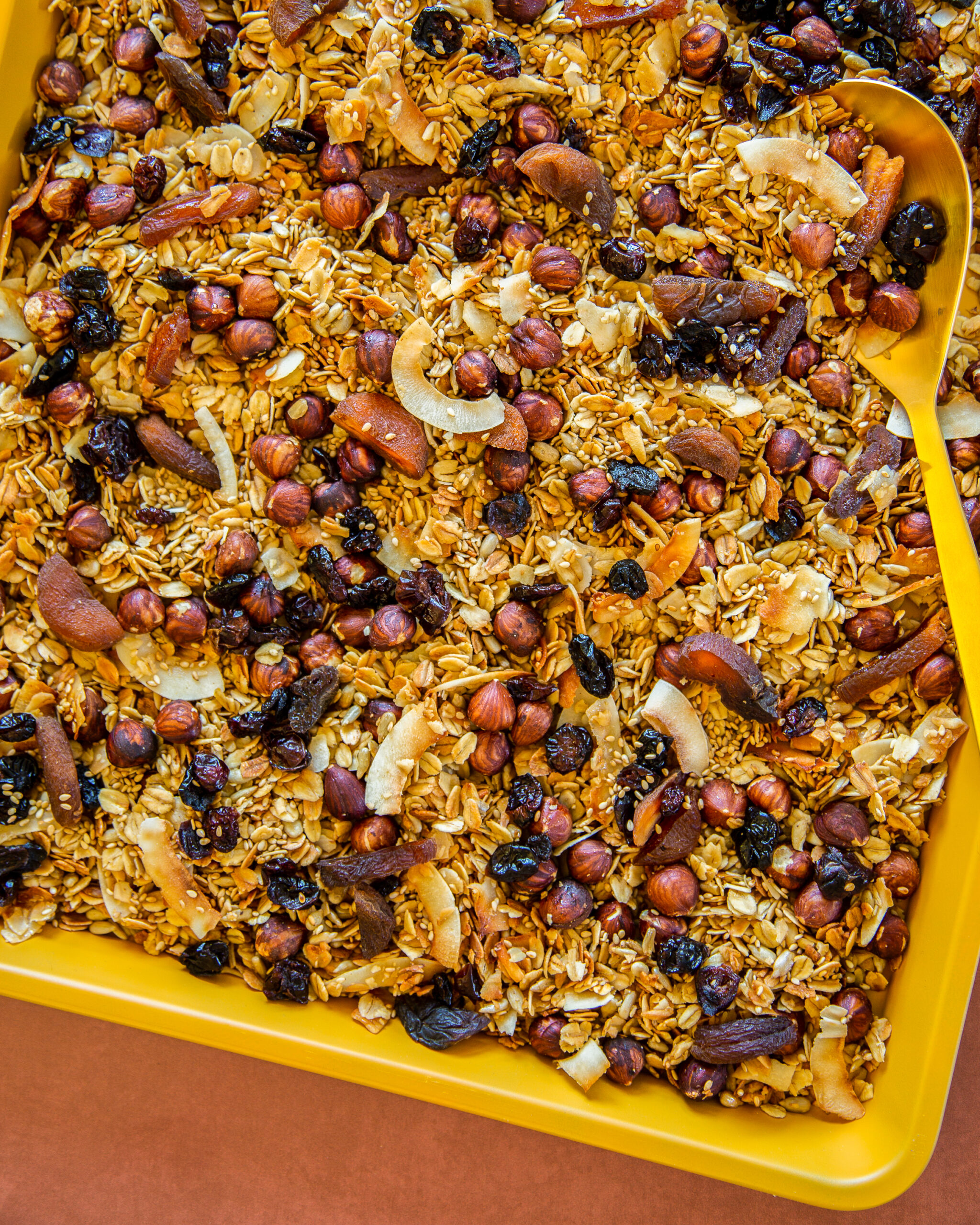
Cran-Haz-Seedy Granola
This granola is packed with nutritionally dense nuts.
Hazelnuts, sunflower seeds, and sesame seeds are not only high in protein but also in a mineral called phosphorus which plays a role in the skeletal development and brain development of a growing fetus.Get the full recipe here.
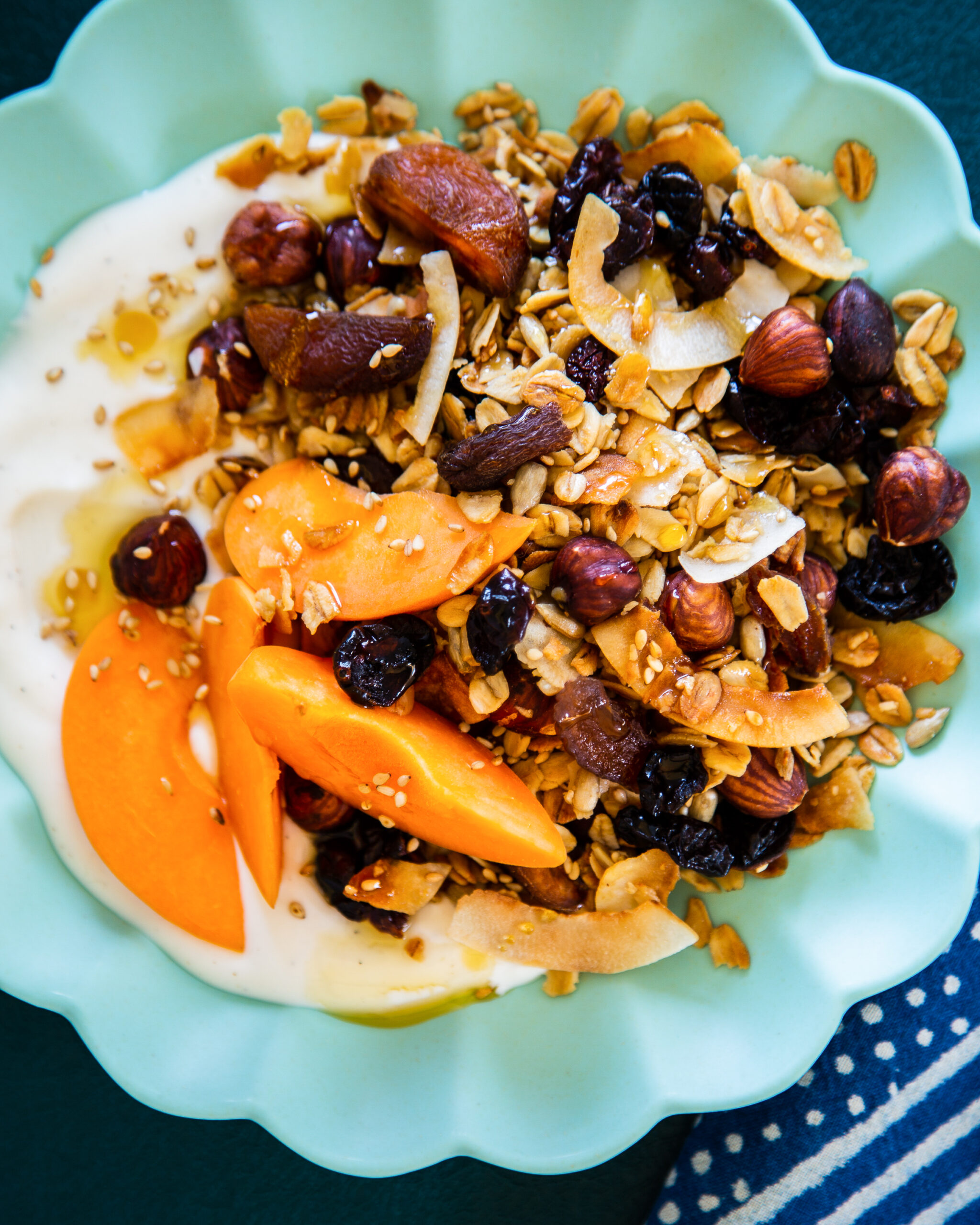
Gluten-Free Granola with Coconut, Cranberries, and Hazelnuts
One of the main ingredients in this recipe is oats, a high-fiber grain that’s also rich in vitamin B6.
If you’re struggling to stomach breakfast due to morning sickness, incorporating more sources of vitamin B6 can help reduce nausea.
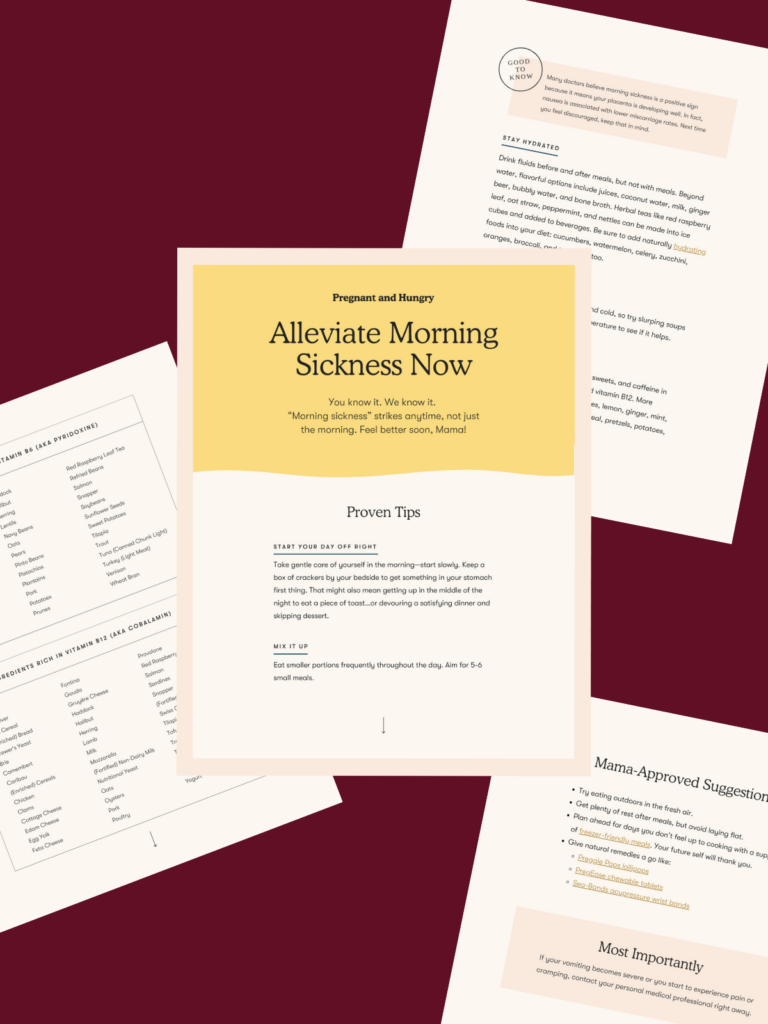
From how many meals to eat to which foods to skip, this guide’s got proven tips, helpful recommendations, and mama-approved suggestions to help ease your nausea when “morning sickness” strikes.
A peek inside:
- The best way to start your day off to avoid nausea
- Recommendations for ways to split up your meals
- Tricks for staying hydrated
- Foods to skip and ingredients to indulge in to fight off nausea
- Mama-approved suggestions that help with morning sickness and make life easier
This gluten-free granola recipe contains protein-rich nuts, as well as apricots.
Apricots are a healthy fruit to add to your shopping list as they contain vitamin A. This vitamin works to assist in cellular division, the development of teeth and hair, immune system function, and eye health.Get the full recipe here.
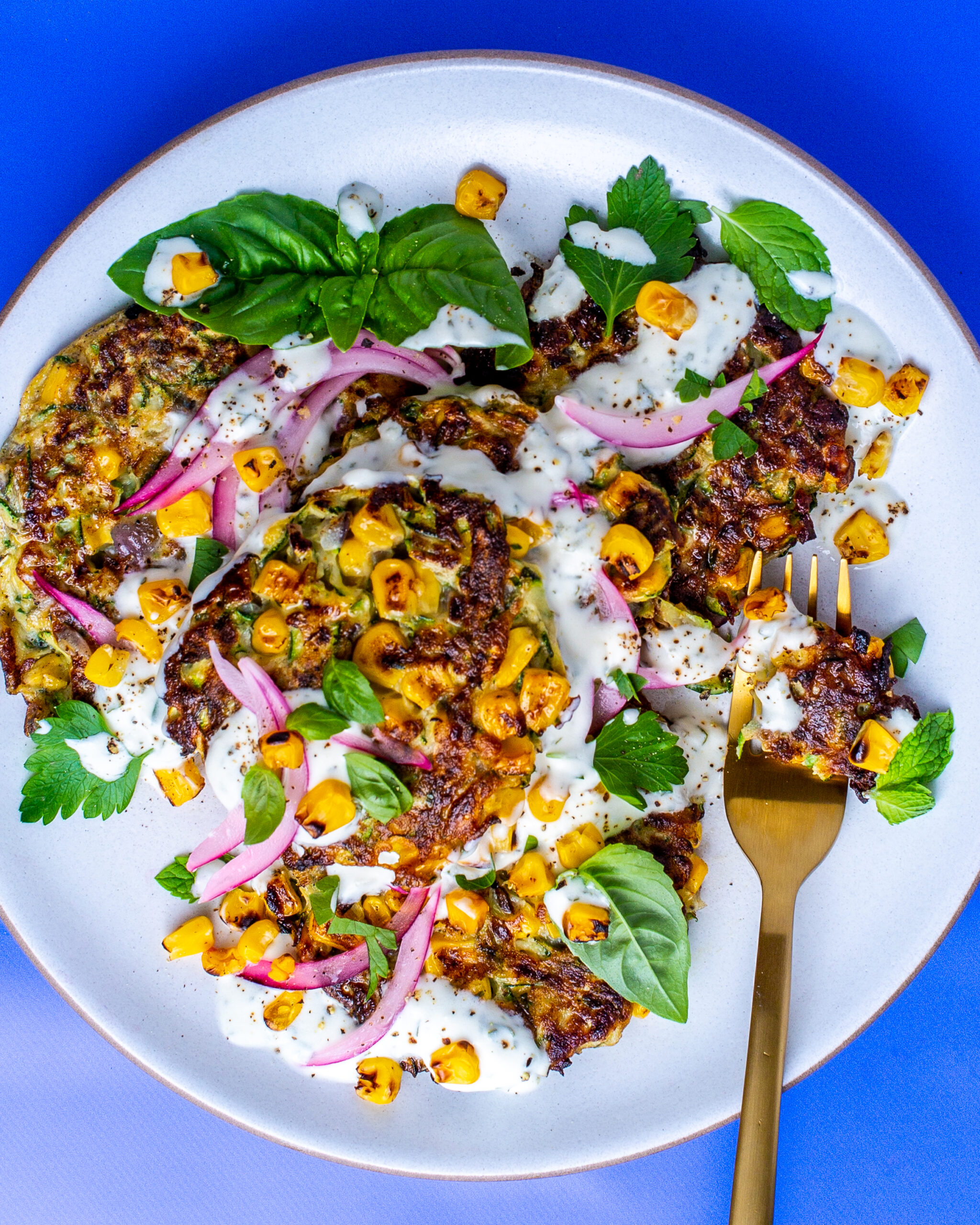
Pancake My Eyes Off Of You, Baby!
Looking for a delicious savory breakfast? Try these pancakes made from corn and zucchini.
The pancakes feature protein thanks to the milk and yogurt. These ingredients are also good sources of calcium, which helps your baby’s bones, teeth, heart, muscles, and nerves develop.
“If you don’t get enough calcium during pregnancy, your body takes it from your bones and gives it to your baby. This can cause health conditions, such as osteoporosis, later in life,” says March of Dimes.
Get the full recipe here.
If you’re unsure about what to eat in the morning when pregnant, give the above healthy pregnancy recipes a try!
